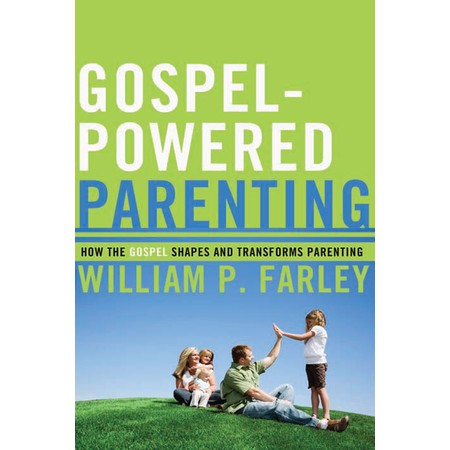{This is a two part review of The Story of the World: History for the Classical Child series by Susan Wise Bauer. This post will cover the first two books in the series, Vol. 1 – Ancient Times and Vol. 2 – The Middle Ages. The next post will cover the final two books in the series, Vol. 3 – The Early Modern Times and Vol. 4 – The Modern World.}

I will start off by saying that I do highly recommend this series. It worked extremely well for us. No curriculum is perfect, so if you are looking for a perfect curriculum, this is not it, but good luck on your quest! I will explain what we liked about SOTW, what was challenging for us and also how we changed it to suit the things we either didn’t like or that didn’t work as well for us.
Introduction
First, an introduction… if you are not already familiar with SOTW, it is world history curriculum for elementary ages (1st – 4th grade) written by Susan Wise Bauer, author of The Well Trained Mind – A Guide to Classical Education at Home. The highlights of world history are taught in chronological order over 4 years starting with Ancient Times (beginnings to the last Roman emperor), then the Middle Ages (Fall of Rome to the Reformation), Early Modern Times (1600 -1850) and the Modern Age (British empire to turn of the 21st century). Materials for each year include the story book, an activity book/teacher's guide (definitely recommended), and a test book (not necessary, especially in the younger grades).
What We Liked
The Stories – The boys loved history time, because it was basically read-aloud time. They got to hear well written stories, that happened to be about real people in real places. When it was time for history, the boys got out their history notebooks and would color a page from the activity book while I read a story to them. They might also get out their Legos and build something to go along with the story. Susan writes in an engaging manner with lots of drama and interest for elementary school age kids. We also loved when we could get the SOTW audio book from the library. These are recorded by storyteller Jim Weiss who is really fun to listen to. This is a fun added resource and great for car-schooling!
The Maps and Activities - After we heard the story, we would complete the map activity from the activity book. This was a great way to learn geography because it was associated with a story. It also helped us to review what we learned. We also enjoyed completing the activities that were suggested in the Activity Book, but I have to admit that I wasn’t brave enough to try and mummify a chicken! Sometimes the boys made up their own activities just from their interest in the subject – my oldest tried to make his own papyrus from cattail leaves (which didn’t work very well, but was definitely a learning experience!) We finished the first year with a Roman feast, which everyone loved.
World History – I really liked that this history was truly world history and not just western history. I have noticed that many homeschool history programs, especially classical history, limit their study to ancient Egypt, Greece and Rome, but this series includes civilizations all around the world – the Americas, India, Africa and China are all included, at least in the most significant events.
Literature Suggestions – The element of the program that cemented history the most for our boys was the historical literature that we read along with the time period that we were studying. The Activity Book has lists of recommendations for each chapter of study – you could never possibly read them all, but we were able to find many options that the boys really enjoyed. Occasionally the list will contain an out of print or hard to find book, so I would find other alternatives. I will include the list of books that we read for the first two volumes at the end of this post.
Answering an Objection
Many people that I know have really enjoyed this series, but there is one objection that I have heard from some that may cause some to avoid this series. I have heard people say that it isn’t “Christian” enough. I think by this objection people may be comparing this book with those from Christian homeschool publishers where every chapter has an explicit reference to Christ, Christianity, the Bible or Christian morality integrated into each subject or chapter. Admittedly, this book does not do that. However, to say that a book isn’t explicitly Christian on every page is not to say that it is somehow compromised or anti-Christian.
Susan Wise Bauer is a Christian author, and includes several important Christian stories in her books. In Vol. 1, she recounts the stories of Abraham, Joseph, the birth and crucifixion of Christ and the destruction of the temple. For Christians ,this is not near enough Christian history and they will want to supplement or integrate other biblical history into their study.
I’m OK with it not being included in my history text – not because I don’t think that the Bible is history, but because I don’t always agree with how homeschool publishers explain this history – their theology may not be the theology that I teach my children.
As a parent, I want to make sure that the way the biblical history is told matches up with the biblical theology that I believe and that my church teaches. Without naming names, there are homeschool publishers from all over the theological spectrum and I want to guard the gospel in my children’s education!
So I will willingly take on the extra task of integrating biblical history into our Ancient History study, early church history and biographies into our Middle Ages study, Reformation stories and missionary biographies into our Modern History curriculum. (I will list some of our favorite resources along with the literature selections at the end of this post.)
Finally, if you are interested in this series of books but are unsure about whether they contain enough “Christian” influence, I would suggest reading Ms. Bauer’s own reflections on why she wrote the way she did, in this article.
Susan Wise Bauer is a Christian author, and includes several important Christian stories in her books. In Vol. 1, she recounts the stories of Abraham, Joseph, the birth and crucifixion of Christ and the destruction of the temple. For Christians ,this is not near enough Christian history and they will want to supplement or integrate other biblical history into their study.
I’m OK with it not being included in my history text – not because I don’t think that the Bible is history, but because I don’t always agree with how homeschool publishers explain this history – their theology may not be the theology that I teach my children.
As a parent, I want to make sure that the way the biblical history is told matches up with the biblical theology that I believe and that my church teaches. Without naming names, there are homeschool publishers from all over the theological spectrum and I want to guard the gospel in my children’s education!
So I will willingly take on the extra task of integrating biblical history into our Ancient History study, early church history and biographies into our Middle Ages study, Reformation stories and missionary biographies into our Modern History curriculum. (I will list some of our favorite resources along with the literature selections at the end of this post.)
Finally, if you are interested in this series of books but are unsure about whether they contain enough “Christian” influence, I would suggest reading Ms. Bauer’s own reflections on why she wrote the way she did, in this article.
Historical Literature We Enjoyed with Vol. 1
The Golden Bull by Marjorie Cowley
Seven Wonders of the Ancient World by Mary Hoffman
D’Aulaire’s Book of Greek Myths
The Gods and Goddesses of Olympus by Aliki
Alexander the Great by Jane Bingham
Detectives in Togas by Henry Winterfeld We loved these books – a great look at the life of a young boy in Roman times, with a mystery to solve too!
Mystery of the Roman Ransom by Henry Winterfeld
See You Later, Gladiator by Jon Scieszka
Peril and Peace: Chronicles of the Ancient Church by Mindy and Brandon Withrow
This is the first book in the History Lives series – an excellent set of resources. Subject matter might be too advanced for 1st graders and you may need to verbally edit any sensitive subjects (specifically martyrdoms) but definitely worth adding to your library for reading at a later age.
This is the first book in the History Lives series – an excellent set of resources. Subject matter might be too advanced for 1st graders and you may need to verbally edit any sensitive subjects (specifically martyrdoms) but definitely worth adding to your library for reading at a later age.
 | History Lives Box Set By Mindy Withrow and Brandon Withrow Let history come alive and learn about early Christianity with this 5 softcover boxed set! Featuring books that span Christianity from 3BC until 1860AD through tomorrow, these books will teach you about important people, events, and places---all the important events that have led to Christianity being what it is today. Books included are:
|
Historical Literature We Enjoyed with Vol. 2
One Thousand and One Arabian Nights by Geraldine McCaughrean
Monks and Mystics by Mindy and Brandon Withrow (Vol. 2 in the History Lives Series)
Monks and Mystics by Mindy and Brandon Withrow (Vol. 2 in the History Lives Series)
Son of Charlemagne by Barbara Willard
The Adventures of Robin Hood by Roger Lancelyn Green
Little Pilgrim’s Progress by Helen Taylor
Beorn the Proud by Madelieine Polland
The Minstrel in the Tower by Gloria Skurzynski
Knights of the Round Table by Gwen Gross
Joan of Arc by Shana Corey
Knights of the Round Table by Gwen Gross
Joan of Arc by Shana Corey
Leif the Lucky by Ingri and Edgar Parin D’Aulaire
The Sword in the Tree by Clyde Robert Bulla
The Whipping Boy by Sid Fleishman
The Door in the Wall by Marguerite de Angeli
Courage and Conviction by Mindy and Brandon Withrow (Vol. 3 in the History Lives series)
(Most of these selections were read alouds and a few were read independently, as my son’s reading level developed.)
In my next post (look for it next week!), I will review Vol. 3 and Vol. 4 of the series and address some of our difficulties and accommodations as the subject matter gets more difficult and we began to teach multiple ages, as well as how we integrated more American history into the world history curriculum.
(This post contains affiliate links.)



















